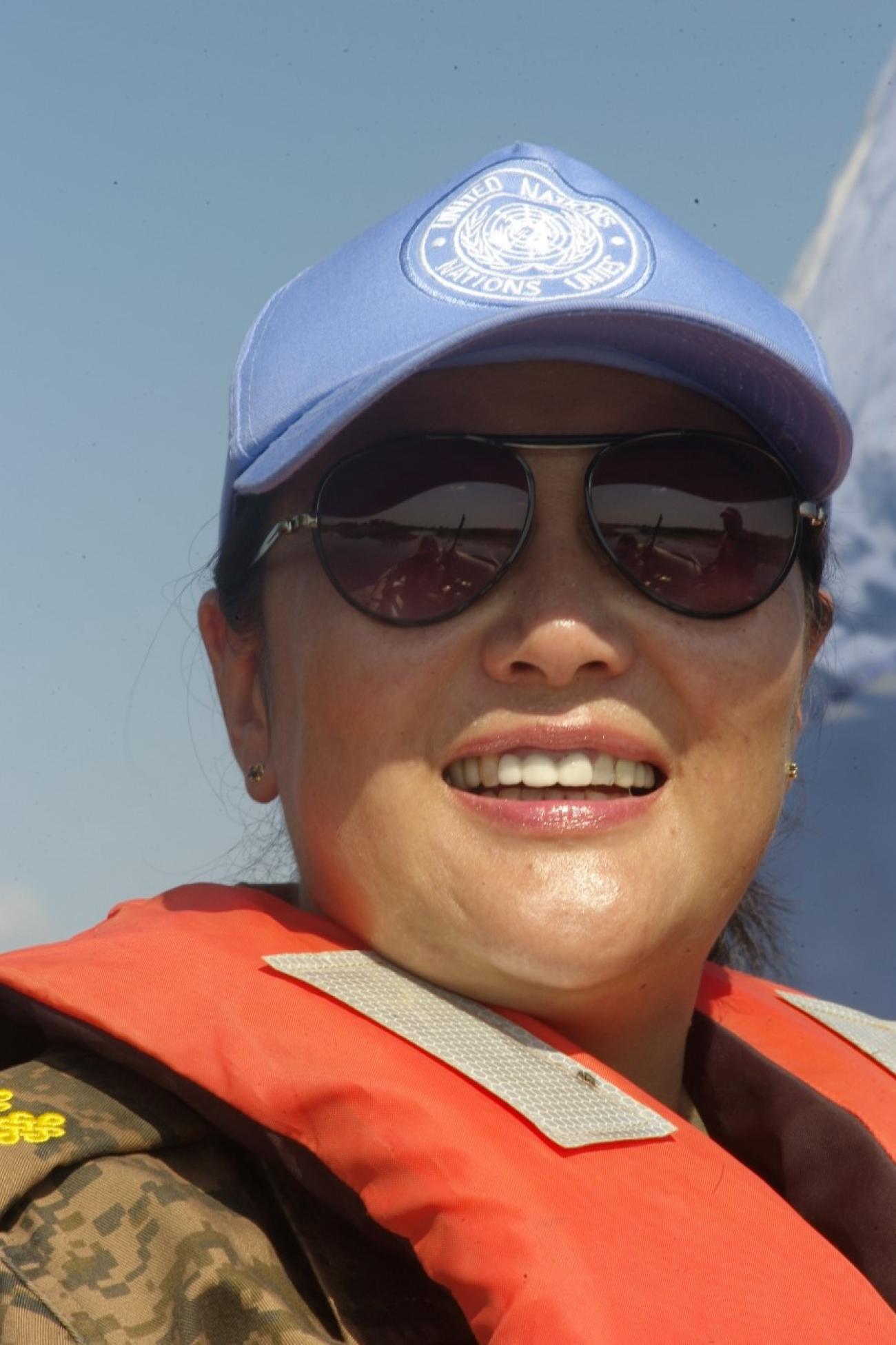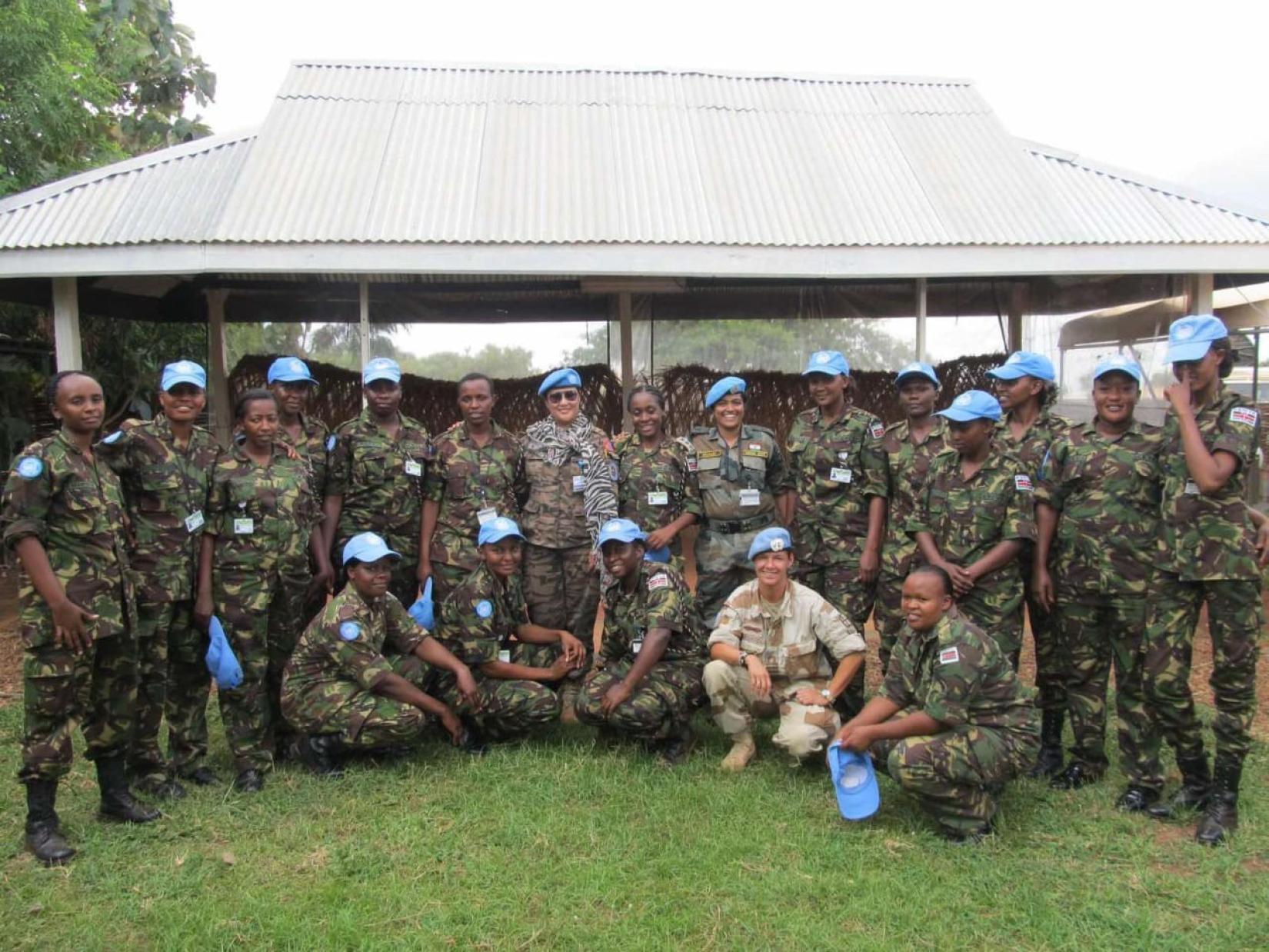People for Peace: Brigadier General Bolor Ganbold

Mongolia’s first woman General on expanding women’s presence and leadership in peacekeeping
Every day, United Nations peacekeepers work to protect hundreds of thousands of vulnerable people in the world’s most fragile political and security situations. Civilian and uniformed personnel in peacekeeping missions support ceasefires, prevent and respond to violence, investigate human rights violations and abuses, and help build peace, recovery, and development in many conflict-affected countries. As Mongolia marks its 20 years of UN peacekeeping deployment by hosting an international conference on women in peacekeeping from 16th to 18th June 2022, we spoke to the country’s first woman General who is also a former Blue helmet.
Brigadier General Bolor Ganbold from Mongolia currently heads the Military Training and Education Department of the General Staff of the Mongolian Armed Forces. In 2010, she was deployed to the United Nations Mission in the Central African Republic and Chad (MINURCAT) and to the United Nations Mission in South Sudan (UNMISS) in 2013. She also worked as a Peacekeeping Affairs Officer within UN Peacekeeping’s Current Military Operations Service (CMOS) in New York after her peacekeeping deployments. Then-Colonel Ganbold was conferred the rank of Brigadier General on Mongolian Military Day (celebrated on March 18th), making her the country’s first female general.
“When I was a teenager, most people of my generation could not fully enjoy the freedom of choosing their own career paths. Instead, we were guided by our parents. Following that tradition, I chose the military school as my mother advised me to. Luckily,r when I graduated from high school, the Military University of Mongolia started recruiting female cadets for the first time.
An aspiration for young women
In 2010, I was deployed as the first Mongolian female staff officer to MINURCAT. Fast forward to March 2022, when I became my country’s first female general; I was proud of myself, but I was also feeling anxious. I knew this was bigger than me. It was an aspiration for thousands of uniformed female personnel in my country. I find it very valuable that young women can be inspired by my promotion and believe that they can achieve the same thing I did.
In a male-dominated environment, women (peacekeepers) help reduce and prevent friction and conflict and bring positive approaches to effectively address the needs of the communities, especially for women and girls during or after conflicts.

Women’s presence should no longer need to be justified
However, in my early deployments, I observed that Mongolia’s female peacekeepers faced various barriers preventing them from fully developing their potential as peacekeepers. For example, one of the significant problems experienced by female peacekeepers, especially in the military contingents, was that they were seldom allowed by their contingent leadership to leave the base to interact with the locals. Having access to the host communities is particularly important in principle, but in practice, it was very much restricted to inspiring, assisting, and engaging with the women in the peacekeeping compound. Therefore, it is important to allow more opportunities for female peacekeepers to perform the tasks that men do.
History shows us that there have been female warriors since ancient times, and there are women currently serving in conflict zones. However, men still outnumber women in the armed forces, and women are still too often confined to supportive roles rather than combat roles. This traditional gender roles attribution prevents women from being promoted and blocks them from advancing in careers and rank in the security sector.
Women’s presence should no longer need to be justified in peace operations.”
This story was first published on the UN Peacekeeping blog
Note of the editor: Mongolia currently deploys up to 890 uniformed personnel to UN peace operations, among which women make up 21.43% of their individual military officers and 7.77% of troops, in line with its commitment toward the implementation of the Women, Peace and Security agenda.

